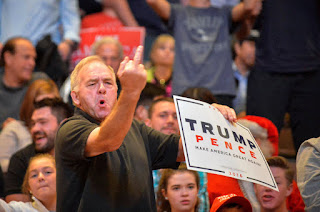Yesterday was not a good day for the Trudeau government. The Federal Court of Appeal shut down the Trans Mountain Pipeline Project. And word out of Washington is that the Trumpian Trade Talks are souring. On the subject of Trans Mountain, Tim Harper writes:
In a stunning confluence of events, the court overturned the National Energy Board and cabinet approval of the Trudeau pipeline expansion on the same day that shareholders with Kinder Morgan, no doubt with huge grins on their face, washed their hands of the project and gave it — lock, stock and legal headache — to the prime minister and Canadian taxpayers.
Even if it only delays the project, the court decision will mean a bigger price tag for the taxpayer, and raise another red flag to foreign investors looking at Canada as a place to do business.
[Rachel] Notley remains landlocked, and that figure in her rearview mirror is the anti-carbon-tax Jason Kenney.
It also must pain a government that has hung so much of its credibility on Indigenous reconciliation to be told by a court that its consultation with Indigenous communities concerned about this expansion amounted to little more than note-taking.
“The government of Canada was required to engage in a considered, meaningful two-way dialogue,’’ the court said in its decision. “However, for the most part, Canada’s representatives limited their mandate to listening to and recording the concerns of the Indigenous applicants and then transmitting those concerns to the decision-makers.”
Trudeau's rhetoric has met the road. In fairness, Canadian Federalism has several moving parts, and getting them to all move in the same direction is no mean feat.
Besides Trans Mountain, Trudeau has been trying to do business with the Orange Ignoramus south of the border, who former Canadian trade negotiator Gordon Ritchie has called "an appallingly ignorant man."
Trudeau and Chrystia Freeland may leave Washington without a deal. And without a pipeline, Justin will face a storm of criticism -- from all sides.
Image: DADCAMP


























